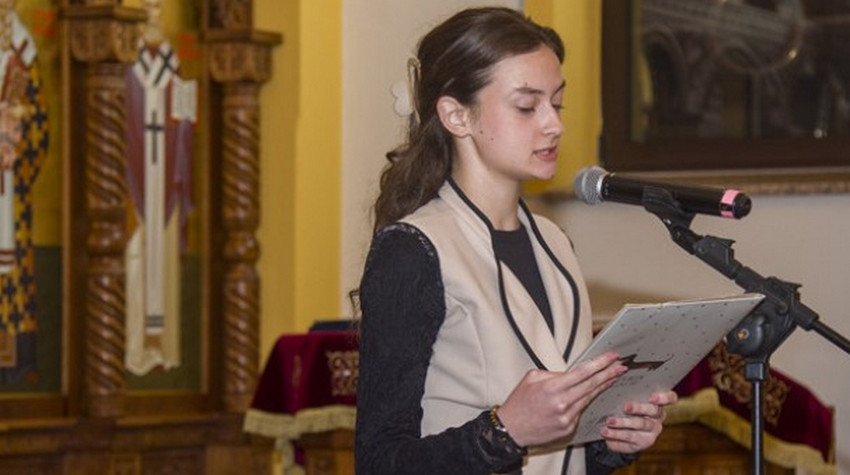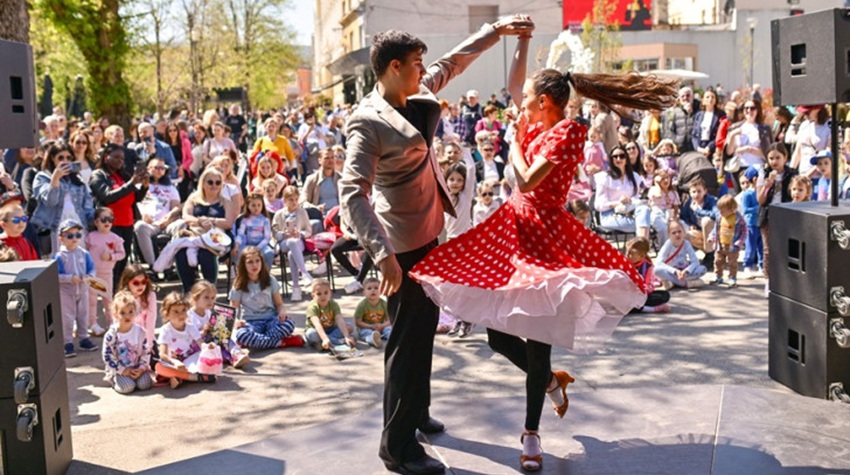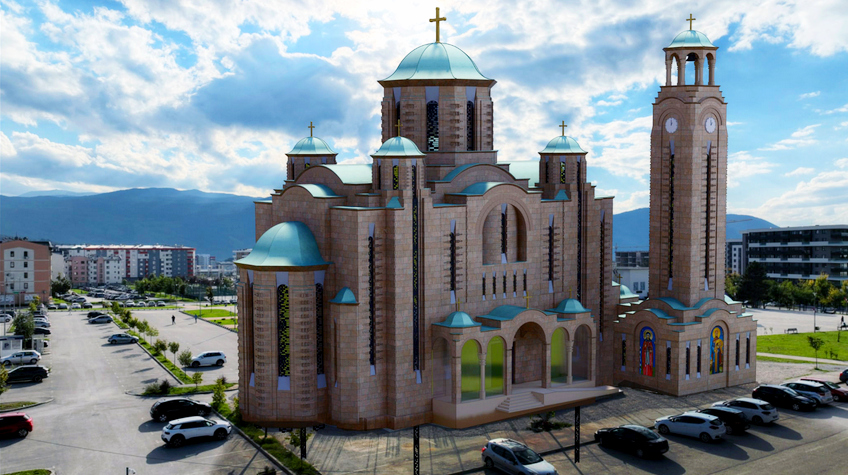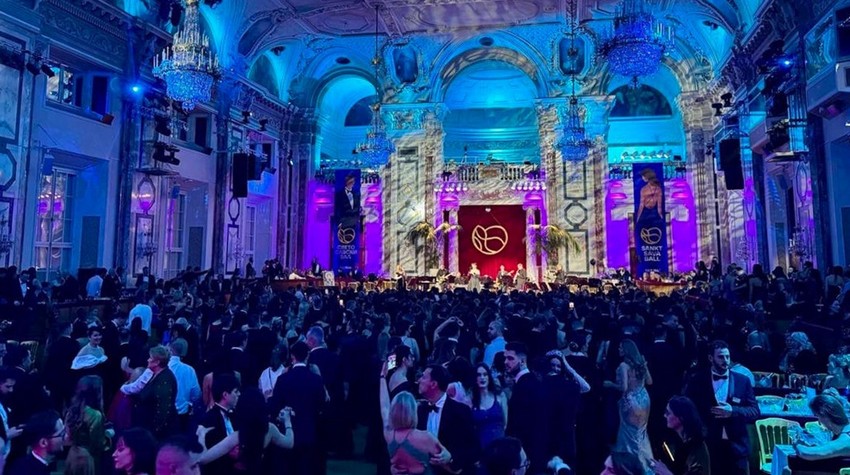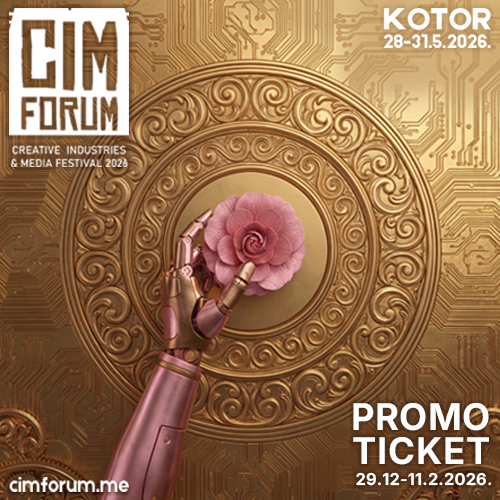NATAŠA NINKOVIĆ EXPLAINS WHY SHE IS NOT OFTEN IN TREBINJE
The airing of the series "Koža," the final part of the Banja Luka trilogy, in which Trebinje native Nataša Ninković portrayed the character Dragana, has recently concluded. Soon, the film "48 Hours and 1 Minute" will have its regional premiere in cinemas, where Ninković plays a police officer.
The film follows Aleksandra, who returns to her homeland two
decades after the war, hoping to raise her daughter in the spirit of Serbian
culture. However, the idyllic atmosphere is shattered when her five-year-old daughter
Lena is kidnapped. The statement by the duty officer that children usually
return by morning, used as a justification for not launching an investigation
until 48 hours have passed, infuriates Aleksandra and compels her to embark on
a journey through the streets of Belgrade, into a labyrinth of fear and the
unknown.
"We finished filming that movie a long time ago, and I
must admit that I am slowly recalling it. My role is a minor part of that
story, the role of a policewoman who operates under the laws of that time,
which were definitely not good. The film is inspired by a true event from ten
years ago, the disappearance of the girl Tijana Jurić. Any reminder of the
topic of missing children, in the form of a film or what Igor Jurić (Tijana
Jurić's father) is doing, is necessary to raise awareness in society. This is
the first project of Sanja Rajačić, who was both the lead actress and
screenwriter, and I hope she succeeded in her intention," Ninković said in
an interview for eTrafika.
How did you develop the character of Dragana in the series "Koža," and how much assistance did you receive from the director and screenwriter?
Nikola (Pejaković, screenwriter and lead actor in the series
"Koža") writes rich characters, depicting them with broad strokes.
For Dragana, he wrote the key to her tragedy, but Saša Hajduković (the director
of the series "Koža") and I refined and discussed further during
rehearsals how we wanted her to appear. When the cameras start rolling, we
actors filter all that knowledge through ourselves and add the final touch.
Good partners are essential to make it come alive and become authentic, and
there were plenty of them in "Koža."
Due to her difficult life and existential situation and the
future of her child, Dragana chose marriage and life with a bad man. Given the
ultimate fate of her daughter and the marriage she chose, what is the message
regarding her earlier life choices?
When you board the wrong train, all subsequent stops are
wrong, often ending disastrously. And when you add a specific social moment to
that, and in our environment, "those moments" are not rare, we come
to a toxicity that leaves little room for mental health.
You filmed the series "Koža" in Banja Luka. What feelings do you have towards the city on the Vrbas, and how does working with the team from Banja Luka stand out compared to other projects you have worked on?
Great people, quite humble, hospitable, and entirely
dedicated, so that team spirit obliges you to always give your best, which I
think is evident in the outcome. Banja Luka has wonderful actors and
filmmakers. I hope they will be supported by the state so that we can see more
of their achievements.
How much does "Koža" represent the reality we live in today?
I hope it's different now, but the matrix by which things
operate, the nexus of politics, business, and crime, is fundamentally similar
everywhere in the region. What stands out and is the biggest problem is our
view of it. We have become so accustomed to it that we no longer notice the small
thorns. We take it for granted and justify it. Only when we reach a dead end do
we raise our voices.
"Koža" also portrays alienation, lack of empathy, and awareness in today's society. How did we come to these states, and what have we lost in people?
We still have empathy compared to the other
"civilized" world! Individuality, the absence of a team, family,
personal ambition that, if successful in terms of power and money, erases all
the dirty deeds that preceded it. We only see the final picture, which we even
"worship."
How do you choose roles, what is crucial for you to accept participation in a project, and what inspires you?
The script, the role, the director, and then the partner.
Usually in this order. I've said it many times before, and I'll say it again. I
am grateful to God that nobody's existence depends on my work, so I can indulge
myself and say no if I feel uninspired by the job offered to me. I still feel a
great passion and respect for my profession. And joy! To keep it that way, I
try not to make big compromises.
You have been receiving awards since the beginning of your career. How much do they mean to you, and were they significant for your confidence as an actress at the beginning of your career?
Confidence does not come from awards because they are always
for a specific role, and each subsequent one is a blank sheet of paper and
everything starts from scratch. I think it comes from experience and maximum
dedication and self-improvement.
It has been six years since the untimely death of Nebojša Glogovac, with whom you played significant roles in the series "Family Treasure" and the film "Trap." What do you remember most about him, and how much do you miss him today as both a person and an actor?
I personally miss him a lot, and perhaps even more so in our
profession. His high standards, reflections, courage, and bravery for the
moment we live in!
What is the most important aspect of Nebojša Glogovac's legacy for the new generations of actors?
His way of thinking. Openness to new and different things,
always grounded in deep spirituality. Perhaps the most important thing is the
responsibility towards one's own talent, which means high quality and
professionalism!
You were born and raised in Trebinje. What is your relationship with this city today, and how often do you manage to visit your native Herzegovina?
That's my hometown. I used to go there often, but currently,
I'm avoiding it a bit for personal reasons... You know, when nobody is waiting
for you by the hearth.
What are your plans for the future, are you working on any new projects?
The situation is quite challenging right now. Society has
become polarized. I've always believed that our profession should rise above
that, and I will continue to think so. That's why I'm turning to the theater.
From April, I'll be preparing for the role of Fema in the play
"Pokondirena tikva," at the National Theater in Belgrade.
Source: eTrafika


